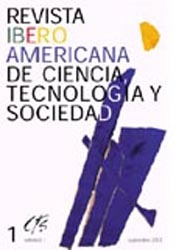A ciência na Espanha na encruzilhada de fim de século (século XIX)
DOI:
https://doi.org/10.52712/issn.1850-0013-1088Palavras-chave:
história da ciência, ciência e literatura, história culturalResumo
O objetivo deste artigo é mostrar como a atmosfera que envolve a introdução das novas teorias científicas na Espanha no último terço do século XIX está contaminada por preconceitos alheios à própria ciência. A época, marcada por uma série de controvérsias intelectuais e político-ideológicas que afetam de forma geral todos os planos da vida, apresenta diversos episódios controversos e geradores de polêmicas quanto à introdução das novas ideias científicas. A Espanha vive, nesses anos, um período de mudanças e reflexão em diferentes âmbitos, entre os quais se destacam os campos científico e tecnológico; o último quartel do século é caracterizado pelo compromisso político e social daqueles que integram o meio científico, literário e intelectual — um compromisso que frequentemente se traduz em ativismo. O naturalismo e a polêmica em torno do novo movimento estético compartilham algumas das críticas dirigidas ao darwinismo nos meios científicos e acadêmicos. Propõe-se uma revisão desses episódios juntamente com um olhar sobre as principais manifestações literárias da época, a fim de analisar como a ciência é representada nesse campo da produção cultural.
Downloads
Referências
ABELLÁN, José Luis (1988): Historia crítica del pensamiento español, vol. 5., I, La crisis contemporánea (1875-1936), Madrid, Espasa-Calpe.
ALAS, Leopoldo (1989): La Regenta, Madrid, Castalia [SOBEJANO, G., ed.].
ALAS, Leopoldo (1991): Solos de Clarín. Madrid, Alianza.
ALAS, Leopoldo Artículos publicados en “Las Novedades”, Nueva York, 1894-1897. Edición digital de la Biblioteca Virtual Cervantes, http://cervantesvirtual.com
ALLEY, J., (ed.), (1996), Cuentos fantásticos. Madrid, Cátedra. [Benito Pérez Galdós]
CANO BALLESTA, Juan (1981): Literatura y tecnología. Las letras españolas ante la revolución industrial, Madrid, Orígenes.
CAPELLÁN de MIGUEL, Gonzalo, y AGENJO BULLÓN, Xavier [eds.] (2000): Hacia un nuevo inventario de la ciencia española. Actas de las IV Jornadas de Hispanismo Filosófico, Santander, Asociación de Hispanismo Filosófico-Sociedad Menéndez Pelayo.
GLICK, Thomas (1982): Darwin en España, Barcelona, Península. [Traducción e introducción, López Piñero, J. M.]
JIMÉNEZ FRAUD, Alberto (1971): Historia de la Universidad Española, Madrid, Alianza.
KAPLAN, T. E. (1970): “Positivism and Liberalism”, pp. 254-266; GLICK, T. F., “Science and the Revolution of 1868: Notes on the Reception of Darwinism in Spain”; en LIDA, Clara y ZABALA, Iris (1970): La revolución de 1868. Historia, pensamiento, literatura, Nueva York, Las Americas Publishing Company, pp. 267-272.
LIDA, Clara y ZABALA, Iris (1970): La revolución de 1868. Historia, pensamiento, literatura. Nueva York, Las Americas Publishing Company.
LITVAK, Lily (1980): Transformación industrial y literatura en España (1895-1905), Madrid, Taurus.
MEDINA, Jeremy (1979): Spanish Realism: The Theory and Practice of a Concept in the Nineteenth Century, Madrid, José Porrúa Turanzas.
MENÉNDEZ PELAYO, Marcelino (1999): Obras Completas. Epistolario. Edición digital en soporte Cd-Rom, Caja Cantabria-CSIC.
MORA GARCÍA, José Luis (1998): Galdós (1843-1920), Madrid, Ediciones del Orto.
NATAL ÁLVAREZ, Domingo (2000): “La polémica de la ciencia en España. El padre Cámara”, en FARTOS MARTÍNEZ, F.; PASTOR GARCÍA, J.T.; VELÁZQUEZ CAMPO, L. [coord.]: La filosofía española en Castilla y León. De la Ilustración al siglo XX, Valladolid, Caja Duero - Universidad de Valladolid.
NAVAS RUIZ, Ricardo (1979): Imágenes liberales: Rivas, Larra, Galdós, Salamanca, Almar.
NÚÑEZ, Diego (1992): “Ciencia y religión en el siglo XIX español: la polémica en torno a Draper”, en HEREDIA SORIANO, Antonio [ed.]: Actas del VI Encuentro de Filosofía Española, Salamanca, Ediciones Universidad de Salamanca, pp. 399-409.
NÚÑEZ, Diego [ed.] (1969): El darwinismo en España, Madrid, Castalia.
PARDO BAZÁN, Emilia (1947-1951): Obras Completas, 3 vols. Madrid, Aguilar. [La cuestión palpitante, La madre naturaleza, Pascual López: autobiografía de un estudiante de medicina, “Un poco de ciencia”, “Un destripador de Antaño”, “Reflexiones científicas sobre el darwinismo”]
PARDO BAZÁN, Emilia (1993): Los pazos de Ulloa, Madrid, Castalia.
PARÍS, Carlos (1989): Unamuno: Estructura de su mundo intelectual, Barcelona, Anthropos.
PÉREZ GALDÓS, Benito (1951): Obras Completas, Madrid, Aguilar. [Amor y Ciencia, El doctor Centeno, Doña Perfecta, Electra, La familia de León Roch, Miau]
PÉREZ GALDÓS, Benito (1990): El doctor Centeno, Madrid, Alianza.
PÉREZ GALDÓS, Benito (1990): Marianela, Madrid, Alianza.
PESET, Mariano y José Luis (1974): La Universidad Española (siglos XVIII y XIX), Madrid, Taurus.
PRATT, Dale (2001): Signs of science: literature, science, and Spanish Modernity since 1868, Indiana, Purdue University Press.
RAMÓN Y CAJAL, Santiago (1999): Cuentos de vacaciones. Narraciones seudocientíficas, Madrid, Espasa-Calpe.
RICO, Francisco [dir.] (1982): Historia y crítica de la literatura española. Tomo V, Romanticismo y Realismo (a cargo de ZAVALA, Iris), Barcelona, Crítica-Grijalbo.
SÁNCHEZ GRANJEL, Luis (1960): Baroja y otras figuras del 98, Madrid, Ediciones Guadarrama.
SÁNCHEZ MANTERO, Manuel (1998): Los cambios de los escritores del 98 ante el problema de España, Sevilla, Fundación El Monte.
SÁNCHEZ RON, José Manuel (1999): Cincel, martillo y piedra: historia de la ciencia en España (siglos XIX-XX), Madrid, Taurus.
SANTIÁÑEZ TIÓ, Nil (1995): De la luna a mecanópolis; antología de la ciencia ficción española (1832-1913), Barcelona, Quaderns Crema.
UNAMUNO, Miguel de (1975): Inquietudes y meditaciones. Madrid, Espasa-Calpe.
Downloads
Publicado
Como Citar
Edição
Seção
Licença
Copyright (c) 2025 CC Attribution 4.0

Este trabalho está licenciado sob uma licença Creative Commons Attribution 4.0 International License.
Todas os números de CTS e seus artigos individuais estão sob uma licença CC-BY.
Desde 2007, a CTS proporciona acesso livre, aberto e gratuito a todos seus conteúdos, incluídos o arquivo completo da edição quadrimestral e os diversos produtos apresentados na plataforma eletrônica. Esta decisão é baseada no entendimento de que fornecer acesso livre aos materiais publicados ajuda a ter uma maior e melhor troca de conhecimentos.
Por sua vez, em se tratando da edição quadrimestral, a revista permite aos repositórios institucionais e temáticos, bem como aos sites pessoais, o autoarquivo dos artigos na versão post-print ou versão editorial, logo após da publicação da versão definitiva de cada número e sob a condição de incorporar ao autoarquivo um link direcionado à fonte original.











